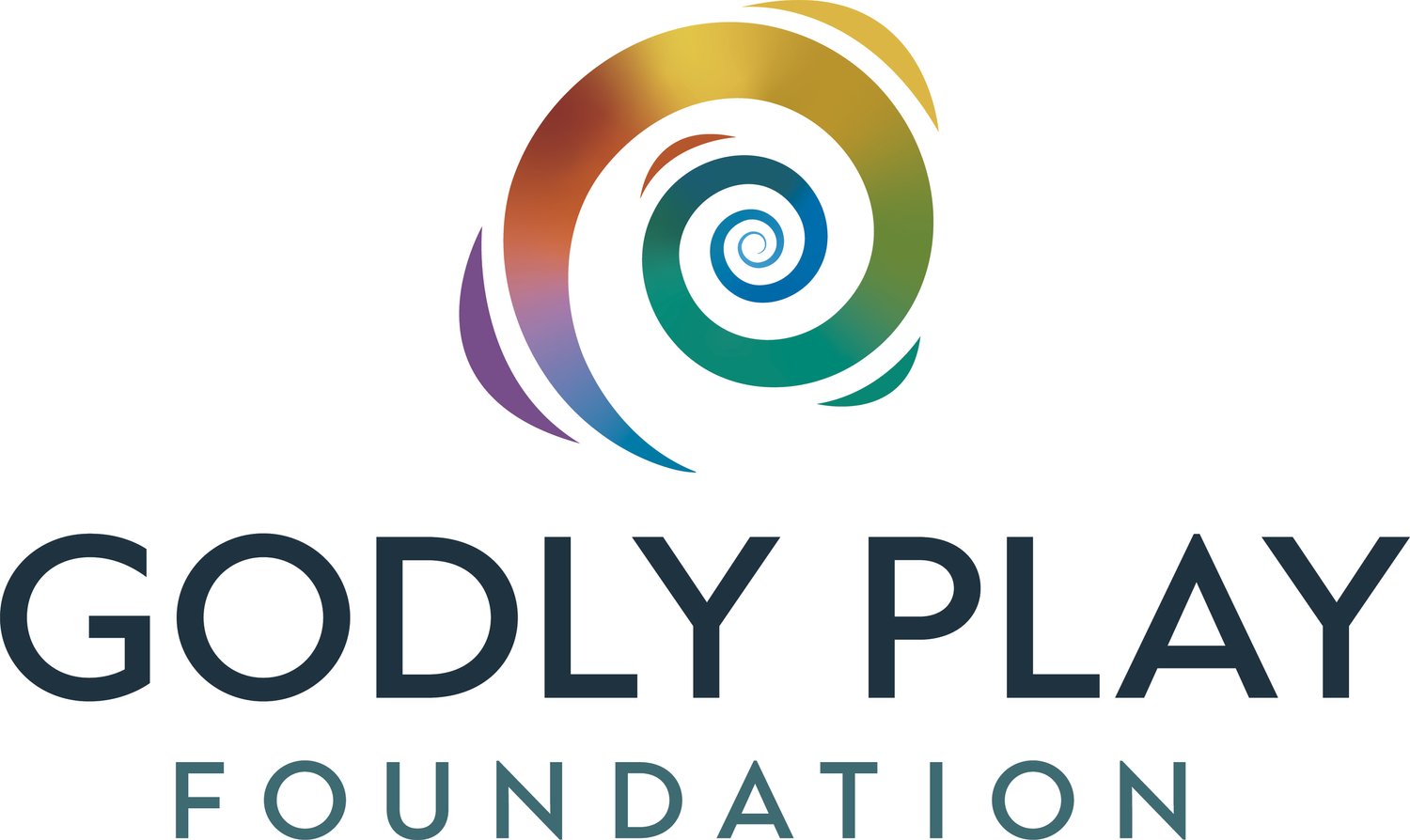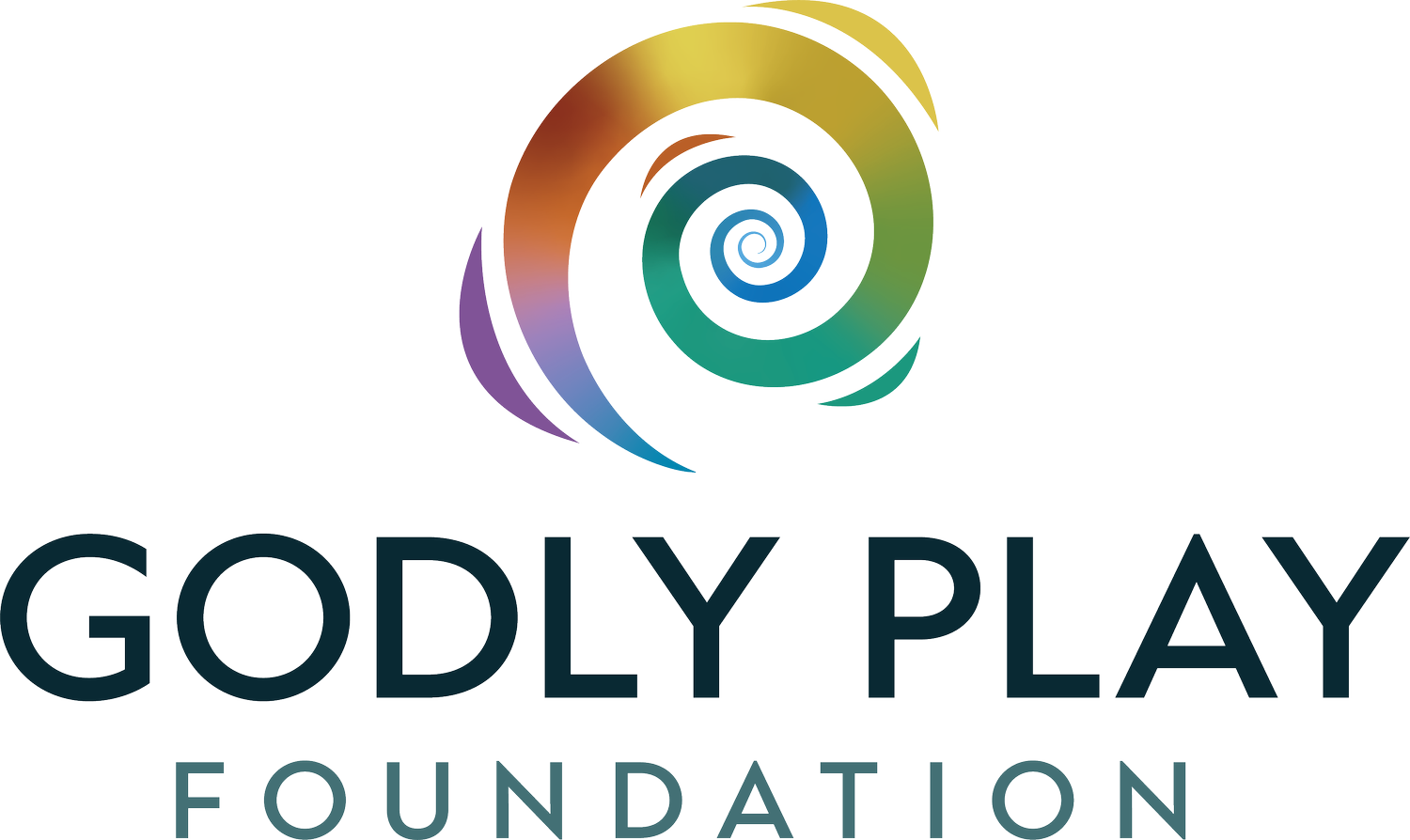Advent week 2: When Godly Play Found Me
A Refection by Anne Vance Bright
Godly Play claims to be a method for the spiritual development of children, but when Godly Play found me, it was my adult need for spiritual development that it met. I was in my early 30’s and skeptical of organized religion. Most of what I saw and heard in mainstream Christianity seemed to value rigid ideas of right and wrong over the kind of complexity and ambiguity that can lead to a deeper encounter with the numinous. The goal, it seemed to me, was to pin down the Mystery and tie it up with a neat bow so we’d all know exactly what the rules were and how to play the game.
Still, I had a need for community at the same time I was allergic to the conformity it seemed to demand. I distrusted certainty, but part of me wanted answers. Instead of the sense of mastery and confidence I had assumed came with adulthood, I found myself growing in anxiety and self-doubt. I felt an overwhelming responsibility for the well-being of our small family and sick for the broken world we lived in. I felt my own limits acutely in the face of it all, and without a creative way to think about it, I was just in it, a tumult of conflict within my own mind.
This was my plight when I walked into our Church’s parish hall and found Jerome Berryman sitting on the floor, surrounded by Creation, the Flood and the Ark, and the parable of the Good Shepherd—all “bible stories” I had written off as tired, trite, well-worn tales. I took my place in the circle. Jerome told the stories with quiet reverence while the glimmer of a smile lit up his face with the ever-present possibility of deep, soul nourishing laughter. His silences said as much as his words, and the language he used was both simple and profound. Instead of reducing the stories to morality tales, his language opened a door and invited me to enter and find personal meaning there. I felt the immense power of those stories, and I knew I had to teach Godly Play to continue engaging with it. Over the next 25 years, I taught Godly Play out of my passion for and deep, personal engagement with the method.
Godly Play has enriched my life in countless ways. At conferences, Jerome pointed us towards writers whose thinking he drew upon—his predecessors in the Montessori tradition and many others in childhood development, story, play, and theology. This reading increased my imagination for what Godly Play is and made me a better parent as well. The children of Godly Play are my teachers as much as I am theirs. In their wondering, I hear things in stories I hadn’t heard before. They challenge me in ways that required me to dig deep for a creative response. The children make me real.
At the same time I was teaching Godly Play, I began to practice and be trained to teach a contemplative writing practice called Proprioceptive Writing. These two approaches to spiritual growth are completely intertwined in me. Like Godly Play, Proprioceptive Writing encourages reflection. It leads me into discovering new meanings in old stories, realizing something I didn’t before, and hearing myself telling the story differently. As new thinking takes hold, old resentments fall away and are replaced by forgiveness, compassion, and freedom from guilt. This leap from a narrower to a broader viewpoint is accompanied by the emotion of spirit rising. Both Godly Play and PW cultivate the capacity to exist in “uncertainties, mysteries and doubts without any irritable reaching after fact or reason” (Keats). Both met a great thirst in me.
This past summer, we held a Proprioceptive Writing Immersion at Trinity Retreat Center, in West Cornwall, CT. We’d been there several days when, as I was passing through the living room, I saw, perched on top of a bookshelf, a low, square, gold box. A parable! But which one? I approached it quietly and tried the lid. It opened for me. Inside was the parable of the Good Shepherd. Godly Play Foundation, I learned, had been there on a retreat just few weeks before. Once again, I’d been found.
Godly Play brought me back to the language of my religious tradition—in both the spoken word and the unspoken language of liturgy—and reintroduced me to its mystery and power. It showed me how, when feeling torn apart by life’s dilemmas, I can recall myself as “a creative being, at home in the universe, making meaning.” I hope that, like the sower, I’ve spread the seeds of this Kingdom among the children I’ve lived Godly Play with, that they will remember the church as a place where they are invited into theological reflection, to play, endlessly, into greater awareness, more comprehensive understandings, into “Life everlasting…World without end, Amen.”
Anne Bright teaches Godly Play at Church of the Good Shepherd, Lookout Mountain, Tennessee. She is a graduate of EFM (Education for Ministry). As a faculty member of the Proprioceptive Writing Center, Anne has taught writing as contemplative practice at churches and spiritual retreat centers for over 25 years. She can be reached at Anne@pwriting.org.





